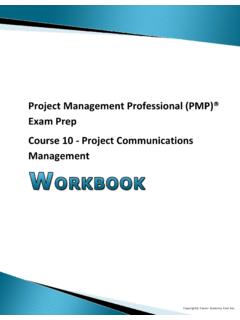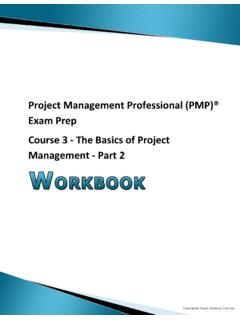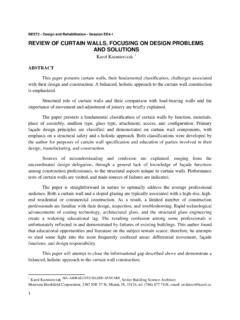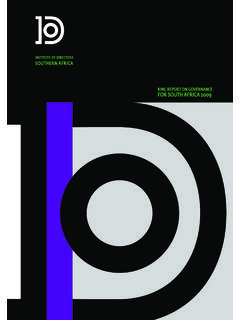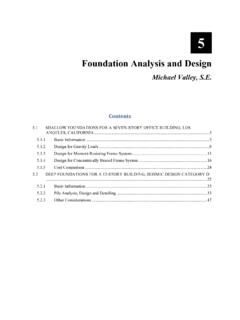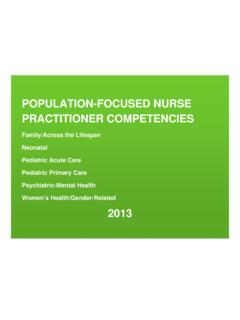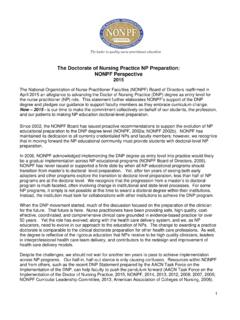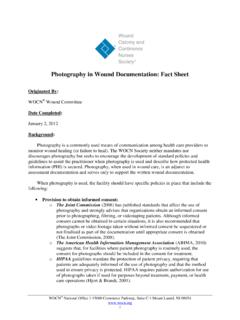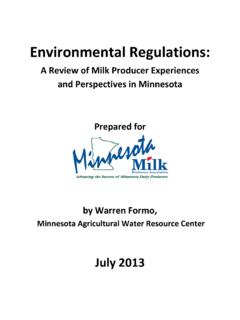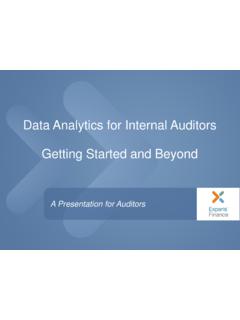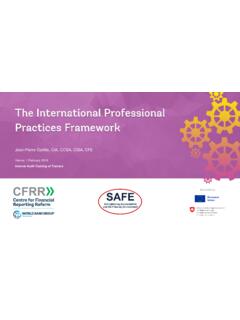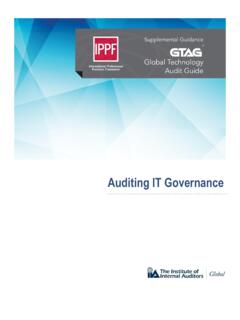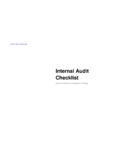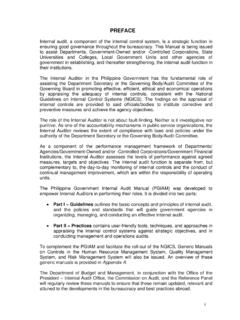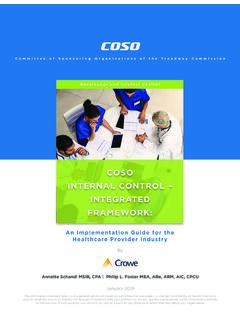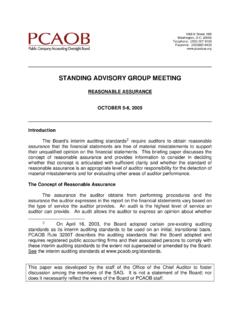Transcription of The role of audit committees in relation to the external ...
1 The role of audit committees in relation to the external and internal audit processThe information contained in this guidance paper is provided for discussion purposes. As such, it is intended to provide the reader and the entity with general information of interest and not to address the circumstances of any particular individual or entity. The information should not be regarded as professional or legal advice or the official opinion of any of the individual organisations represented on the steering committee of the Public Sector audit Committee Forum (PSACF).
2 Although the PSACF takes all reasonable steps to ensure the quality and accuracy of the information, no action should be taken on the strength of the information without obtaining professional advice. The PSACF and the sponsors shall not be liable for any damage, loss or liability of any nature incurred directly or indirectly by whomever and resulting from any cause in connection with the information contained is important for an audit committee to have a good relationship and communication with internal and external audit to fulfil its role of improving governance in an institution.
3 This is particularly true in the public sector in the broader interests of the country s citizens. An important part of this relationship is an understanding of the internal and external audit processes, the relationship between the two, and the role that the audit committee plays in these processes. This understanding will maximise the benefits to be derived from these audits and contribute positively to the audit committee s effectiveness. This paper details the internal and external audit processes and the audit committee s role in relation public sector audit environment is one in which government and other public sector entities exercise responsibility for the use of resources derived from taxation and other sources in the delivery of services to citizens and other recipients.
4 These entities are accountable for their management and performance, as well as for the use of resources, relating to both those that provide the resources and those, including citizens, who depend on the services delivered using those resources. Public sector auditing helps to create suitable conditions and reinforce the expectation that public sector entities and public servants will perform their functions effectively, efficiently, ethically and in accordance with the applicable laws and objectives of external and internal audit can be defined as follows: external auditors , internal auditors and audit committees are part of the assurance processes to maximise risk and governance oversight as well as control effectiveness.
5 The audit committee should ensure that it maintains open lines of communication with the internal and external auditors to gain the best advantage from the assurance provided. Cooperation and coordination of internal and external auditThe audit committee s awareness of the internal and external audit objectives, roles and processes, as well as that of other assurance providers, and their role in relation to those objectives and processes should form the basis of expectations of these assurance providers by the audit on the objectives of external and internal audit as defined above, it is clear that while there is synergy in their roles.
6 They are nevertheless distinct from one another. The internal audit functions of many entities are established as part of their internal control and governance structures. The size and structure of the institution, in addition to the requirements of management and, where applicable, those charged with governance, have an impact on the objectives and scope of the internal audit function, the nature of its responsibilities and its organisational structure. To obtain the most value from internal audit , it should focus on its main functions which are largely preventative in nature to improve the institution s operations by ensuring that risk management, control and governance processes are in place.
7 This will ensure the stewardship of public funds and performance of government policies, programmes and operations; which are in turn evaluated by external audit . external auditors are not required to use the work of internal audit , but may do so in a constructive and complementary manner under certain circumstances. The contributions by internal audit and external audit will only be optimised if there is no misunderstanding of their distinct but complementary responsibilities of audit committees regarding internal and external auditSpecific responsibilities of the audit committee pertaining to internal and external audit as contained in the Public Finance Management Act, 1999 (Act No.)
8 1 of 1999) (PFMA), Treasury Regulations and the Municipal Finance Management Act, 2003 (Act No. 56 of 2003) (MFMA) include the following: Reviewing the effectiveness of the internal audit function. Reviewing the risk areas of the institution s operations to be covered in the scope of internal and external audits. Reviewing the activities of the internal audit function, including its annual work programme and coordination with the external auditors . Meeting at least annually with the external auditors to ensure that there are no unresolved issues of concern.
9 external AuditIn general, external auditing can be described as a systematic process of objectively obtaining and evaluating evidence to determine whether information or actual conditions conform to established criteria. Public sector auditing is essential in that it provides legislative and oversight bodies, those charged with governance and the general public with information and independent and objective assessments concerning the stewardship and performance of government policies, programmes or audit internal audit is defined by the Institute of internal auditors (IIA) as an independent, objective assurance and consulting activity designed to add value and improve an institution s operations.
10 It helps an institution accomplish its objectives by bringing a systematic and disciplined approach to evaluate and improve the effectiveness of risk management, control and governance processes. 31 ISSAI 100 Fundamental principles of public sector auditing2 The objective of external audit as defined by ISSAI 100 Fundamental principles of public sector auditing3 The objective of internal audit as defined by the IIA 3 Facilitating the delivery of quality audits A number of key attributes, including the ones listed below, should be in place to ensure that the environment is conducive to the delivery of quality audits.
